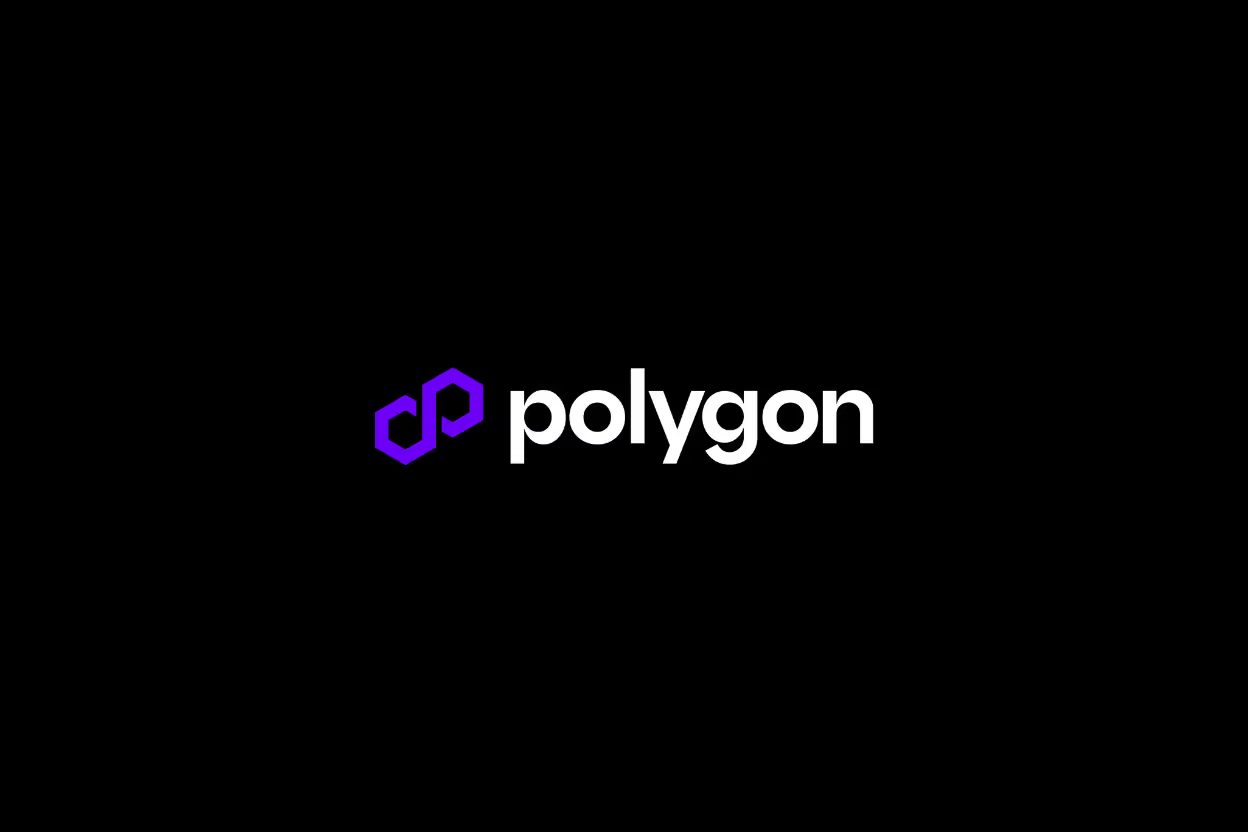Zero-knowledge proofs (ZKPs) let one party prove something is true without revealing details about the information itself. This makes them valuable for scaling blockchains while protecting user privacy. Polygon, a popular Layer 2 solution for Ethereum, is building heavily on ZK technology to improve transaction speeds and lower costs.
As Polygon moves beyond its Proof-of-Stake chain, zero-knowledge proofs will play a central role in its future roadmap. They power innovations like zkEVM rollups, which allow Ethereum-compatible smart contracts to run with much greater efficiency. Understanding how Polygon uses ZKPs helps crypto founders and VCs see the practical benefits for scaling, privacy, and adoption in the Web3 space.
Understanding Zero-Knowledge Proofs in Blockchain
Zero-knowledge proofs (ZKPs) are reshaping how blockchains handle privacy and scalability. Before we examine Polygon’s approach, it helps to break down what zero-knowledge proofs are, the variants relevant to Polygon’s ecosystem, and why these proofs matter for the future of blockchain.
Basics of Zero-Knowledge Proofs
At its core, a zero-knowledge proof lets you prove something is true without revealing the details behind it. Imagine showing you know a secret password without actually giving the password away. That's the essence of a ZKP. The “prover” convinces the “verifier” that a statement holds true, yet no extra information leaks during this process.
This method ensures three key properties:
- Completeness: If the statement is true, an honest prover can convince the verifier.
- Soundness: If the statement is false, no cheating prover can trick the verifier.
- Zero-Knowledge: The verifier learns nothing beyond the truth of the statement.
This makes ZKPs incredibly useful in blockchain, where protecting user data and maintaining trust is vital—users can prove transactions or inputs are valid without exposing sensitive data.
Types of ZKPs Relevant to Polygon
Polygon employs two main types of zero-knowledge proofs: zk-SNARKs and zk-STARKs. Both play crucial roles in making Polygon’s Layer 2 solutions efficient and secure.
- zk-SNARKs (Zero-Knowledge Succinct Non-Interactive Argument of Knowledge)
These are small, fast proofs that require a trusted setup process. zk-SNARKs allow Polygon to verify thousands of transactions off-chain, then submit a single proof on-chain, drastically reducing gas costs. Polygon Zero and the zkEVM product heavily rely on zk-SNARKs optimized with recursive proving systems like Plonky2, enabling quick proof generation and verification. - zk-STARKs (Zero-Knowledge Scalable Transparent Argument of Knowledge)
Unlike zk-SNARKs, zk-STARKs avoid trusted setup entirely. They use hash-based cryptography, making them more transparent and quantum-resistant but generally larger in proof size. Polygon Miden is an example project using zk-STARKs, enabling a custom virtual machine that executes smart contracts with high throughput and privacy.
Both types let Polygon build scalable, private, and efficient rollups. By mixing these technologies, Polygon balances speed, cost, decentralization, and security.
Benefits of ZKPs for Blockchain Scalability and Privacy
Why do zero-knowledge proofs matter for blockchains like Polygon? The benefits extend across three major areas:
- Improved Transaction Throughput
ZKPs enable rollups that combine many transactions into one proof. Instead of every transaction hitting Ethereum’s main chain, these proofs confirm many at once. This boosts the number of transactions the network can process per second. - Reduced Gas Costs
Since the proof shows all transactions are valid, only a single proof needs to be stored on-chain. This drastically cuts down on transaction fees, which is crucial for mass adoption. - Enhanced User Privacy
ZKPs verify transaction correctness without exposing sender, receiver, or amounts. This provides strong privacy guarantees, unlike traditional blockchains where transaction details are public.
Together, these advantages create a better user experience and attract new decentralized app developers who require fast, low-cost, and private blockchain solutions. For Polygon, ZKPs are central to scaling Ethereum-compatible apps without compromising security or decentralization.
The question many ask is how soon these benefits will reach everyday users. Polygon’s focus on zkEVM and other ZK-powered rollups suggests this future is closer than many realize. In the next sections, we’ll explore how Polygon is turning these proofs into tangible technology for Web3’s growth.
Polygon’s Zero-Knowledge Technology Strategy
Polygon has built its roadmap around zero-knowledge (ZK) technology to scale Ethereum without compromising security or decentralization. This strategy includes multiple ZK-powered rollups and systems tailored for different goals: high throughput, privacy, developer-friendliness, and Ethereum compatibility. By supporting various proof systems like SNARKs, STARKs, and recursive proofs, Polygon creates a rich ecosystem where experiments and innovations evolve side by side. Here’s a detailed look at key components of Polygon’s ZK technology stack and how they fit together.
Polygon Hermez and Zero-Knowledge Rollups
Polygon Hermez was the pioneer decentralized zk-rollup on Ethereum’s mainnet, focusing on secure and low-cost token transfers. It batches thousands of off-chain transactions into a single proof submitted on-chain, reducing gas fees by over 90% compared to Layer 1. Hermez uses zk-SNARK technology combined with a novel Proof of Efficiency consensus, allowing anyone to become a coordinator for transaction batching or block production.
This decentralized design keeps the network censorship-resistant and cheaper than typical Ethereum mainnet transactions. With throughput around 2,000 transactions per second, Hermez streamlines token swaps and transfers while maintaining Ethereum-level security.
Hermez 2.0 evolves further with zkEVM compatibility, letting existing Ethereum smart contracts run efficiently on the rollup. Leveraging recursive proofs, it accelerates proof generation to under 0.2 seconds, positioning Polygon to handle a sharp increase in Ethereum dApp activity without bottlenecks.
Polygon Zero and the Plonky2 Recursive SNARK
Proof generation speed often bottlenecks ZK systems, but Polygon Zero tackles this by building on Plonky2, a recursive SNARK system engineered for speed and Ethereum compatibility. Plonky2’s design merges the advantages of PLONK and FRI polynomial proving systems, enabling rapid cycles of proof aggregation.
This allows Polygon Zero to generate proofs in roughly 170 milliseconds, about 100 times faster than previous solutions. These recursive SNARKs drastically lower verification costs and support batching large numbers of transactions without delays.
The speed and efficiency of Plonky2 make Polygon Zero ideal for high-throughput applications such as decentralized exchanges and real-time payment systems. It complements other Polygon projects by pushing the envelope on how fast zk rollups can operate in practice.
Polygon Miden and STARK-Based Computation
Polygon Miden opts for zk-STARKs, a proof system that requires no trusted setup and provides quantum-resistant cryptography. At Miden’s core is a custom STARK-based virtual machine that executes arbitrary smart contracts while generating proofs of correctness.
This ZK virtual machine runs programs with high performance, including complex cryptographic operations, while producing transparent, easily verifiable proofs. Its open architecture is designed for privacy-sensitive applications and supports advanced blockchain logic beyond simple transfers.
Miden bundles thousands of transactions per block, aiming for throughput exceeding 5,000 transactions per second. By relying on STARKs, Polygon ensures the strongest guarantees for security and privacy, offering an alternative path in Polygon’s ZK roadmap focused on transparency and post-quantum safety.
Polygon Nightfall: Combining Optimistic and ZK Rollups
Polygon Nightfall targets enterprise use cases by merging the scalability of Optimistic Rollups with the privacy advantages of zero-knowledge proofs. It enables confidential token transfers that hide sender, receiver, and amount, while achieving costs much lower than native Ethereum transactions.
Nightfall's hybrid approach leverages optimistic assumptions for fast transaction processing, backed up by ZK proofs and fraud proofs for validation and dispute resolution. This structure supports private transactions for tokens like ERC-20, ERC-721, and ERC-1155, making it suitable for supply chains, financial services, and private NFT markets.
Currently capable of around 100 transactions per second, Nightfall balances throughput with privacy needs, filling a niche for enterprises that must meet regulatory and security standards without sacrificing chain efficiency.
The Launch and Design of Polygon zkEVM
Polygon zkEVM is the flagship zero-knowledge rollup designed to run Ethereum’s Virtual Machine exactly as it functions on Layer 1. By developing a zkEVM that is fully compatible with existing Ethereum smart contracts, tools, and developer workflows, Polygon drastically cuts on-chain gas fees—by estimates up to 90%—while preserving security.
The architecture consists of a zk-node running the zk-SNARK prover off-chain, a Verifier contract on Ethereum L1 that confirms proof validity, and a decentralized sequencer to order transactions. zkEVM relies on recursive zkSNARKs to batch transactions and generate proofs efficiently, keeping latency low and throughput high, with thousands of transactions validated per second.
What makes zkEVM compelling is its ability to run unmodified Solidity and Vyper contracts with the same tooling developers already know, including Metamask, Hardhat, and Truffle. This removes friction for dApp developers seeking Ethereum-level security combined with the speed and cost advantages of Layer 2.
By supporting advanced cryptographic techniques and a flexible data availability layer, zkEVM sets a new standard for scalable, secure, and developer-friendly Ethereum rollups. It represents a major step in Polygon’s zero-knowledge strategy to bring Ethereum to a billion users with sustainable costs and top-level security.
Together, these projects showcase how Polygon uses a mix of ZK proof systems and design philosophies to address scalability, privacy, and interoperability. Polygon’s approach is comprehensive, allowing it to offer different solutions optimized for various use cases, from enterprise confidential transfers to large-scale decentralized applications running fully Ethereum-compatible smart contracts. This layered ZK strategy places Polygon at the forefront of scaling blockchains while maintaining trust and usability.
Technical Innovations Supporting Polygon's ZK Ecosystem
Polygon’s journey into zero-knowledge (ZK) technology is powered by a set of strong technical innovations that make the ecosystem not just scalable and private, but also developer-friendly and fast. These breakthroughs extend beyond just theory—they form the foundation for practical, high-performance blockchain solutions. Here, we explore how zero-knowledge virtual machines, specialized hardware, and advanced proof aggregation methods are shaping Polygon’s ZK ecosystem.
Zero-Knowledge Virtual Machines and Developer Tools
Polygon is developing zero-knowledge virtual machines (zkVMs) that make writing and deploying ZK applications far more accessible. zkVMs act like a blockchain-compatible runtime environment designed specifically to handle zero-knowledge proofs efficiently while running smart contracts or other scripted logic.
Two domain-specific languages lead this effort:
- Noir: A privacy-aware language tailored for building ZK circuits with simplicity and security in mind. Noir’s syntax is similar to Rust, which makes it easier for developers familiar with common coding patterns to write zero-knowledge programs without dealing with low-level cryptographic constructs.
- Circom: This language focuses on circuit design for custom proof systems, allowing developers to define zero-knowledge circuits that can be compiled and used within Polygon’s proof system. Circom is especially popular among those needing tight control over proof logic.
Together, these developer tools reduce the barrier to entry for ZK programming. They allow teams to write privacy-preserving logic or scale computations off-chain without becoming cryptographers. This opens the door for a broader set of Web3 founders and dApp developers to harness ZK proofs in their products.
Hardware Acceleration and Proof Generation Speed
Proof generation is traditionally the slowest step in ZK protocols—it involves complex math operations that can be computationally expensive. Polygon addresses this with advanced hardware utilization to speed things up and support scaling.
Key hardware components involved:
- GPUs (Graphics Processing Units): With highly parallel architectures, GPUs accelerate cryptographic computations, enabling faster batch proof generation.
- FPGAs (Field Programmable Gate Arrays): These programmable chips can be customized for particular proof circuits, boosting efficiency and lowering energy use.
- ASICs (Application-Specific Integrated Circuits): Although less common, ASICs designed for ZK proof operations offer the highest performance with minimal power consumption.
This combination of hardware approaches helps Polygon reduce proof generation times from several minutes to mere seconds or even milliseconds in some cases. Faster proof creation translates directly to better throughput and lower latency, both crucial for real-time applications like decentralized exchanges and gaming.
Proof Aggregation and On-Chain Verification Mechanisms
How does Polygon keep on-chain costs low while maintaining security? The answer lies in sophisticated proof aggregation and smart contract verification.
Polygon takes multiple zero-knowledge proofs generated off-chain and aggregates them into a single succinct proof. This aggregation process compresses many transaction proofs into one, drastically reducing the data size that needs to be posted on Ethereum’s mainnet.
Once on-chain, Polygon uses smart contracts—these are carefully audited and optimized contracts deployed on Ethereum—to verify the aggregated proof’s validity. This ensures every off-chain transaction was correct without Ethereum nodes having to re-execute the entire workload.
This mechanism effectively offloads heavy computation to Polygon’s Layer 2, but keeps the ultimate security validation on Ethereum’s Layer 1. It’s a balance of performance and trustlessness that supports Polygon’s goal of scaling while preserving Ethereum-level security guarantees.
These technical innovations work in tandem to build a robust zero-knowledge stack. Polygon’s zkVMs empower developers to unlock privacy and scalability easily. Hardware acceleration trims down proof times, making ZK systems practical at scale. Meanwhile, proof aggregation and smart contract verification keep the whole ecosystem secure, decentralized, and cost-efficient. This groundwork is essential for Polygon to expand its ZK ecosystem and scale Web3 applications on Ethereum efficiently.
Future Implications: How Zero Knowledge Will Shape Polygon’s Growth
Zero-knowledge proofs (ZKPs) aren’t just technical tools for Polygon—they are the backbone of its future scalability, privacy, and ecosystem expansion. As Polygon continues building zkEVM rollups and other ZK-powered solutions, the network aims to remove traditional barriers such as costly gas fees, slow transaction times, and compromised privacy. The potential of zero-knowledge technology covers far more than just speed improvements; it also opens doors for complex decentralized applications, private user interactions, and greater enterprise involvement. Let’s explore how these aspects of zero knowledge influence Polygon’s trajectory.
Scaling Ethereum with Privacy and Speed
Polygon’s zero-knowledge rollups combine many off-chain transactions into a single proof submitted on Ethereum’s mainnet. This model significantly reduces network congestion and gas costs by lowering the volume of data processed on Layer 1. The result? Thousands of transactions can be verified swiftly and cheaply, enabling developers to build and deploy more complex decentralized apps and DeFi platforms without worrying about prohibitive fees or bottlenecks.
The effect is twofold:
- Enhanced throughput: Polygon zk rollups can process transactions at speeds that rival centralized platforms, while still preserving Ethereum-level security.
- Cost reduction: By posting compressed proofs rather than every transaction, users pay a fraction of what they would on Ethereum mainnet.
These improvements attract projects that demand high performance, such as decentralized exchanges, lending platforms, and gaming dApps. With zero-knowledge rollups shaping its core architecture, Polygon is scaling Ethereum without sacrificing security or accessibility.
Enhancing Privacy for Users and Organizations
Privacy goes hand in hand with zero knowledge. Polygon’s ZK technology unlocks new possibilities for confidential, private interactions on public blockchains. How can identity, voting, and asset management become more secure without compromising transparency? By using zero-knowledge proofs, users and organizations can prove they hold certain credentials or control assets without revealing sensitive data.
Common privacy-preserving applications becoming practical on Polygon include:
- Confidential identities: Proven attributes without exposing the full identity; critical for compliance and secure onboarding.
- Censorship-resistant voting: Voters can prove eligibility and cast votes privately without revealing their choices to the public.
- Secure asset management: Organizations can transfer or manage assets with privacy, protecting intellectual property and avoiding front-running.
This blend of transparency and confidentiality boosts trust while preventing overexposure of user data—an important factor as enterprises and regulators seek more robust privacy tools on blockchain.
Simplifying Developer Experience with zkEVM Compatibility
Polygon’s zkEVM aims for full EVM equivalence, meaning developers can run unmodified Ethereum smart contracts on Layer 2 with zero knowledge rollups powering the backend. This compatibility removes the friction developers face when migrating from Layer 1 to Layer 2 or building new projects.
Why is this important?
- No learning curve: Developers continue using familiar languages like Solidity and existing Ethereum tools.
- Smooth migration: Existing dApps can easily port to Polygon’s zkEVM with minimal adjustments, saving time and reducing bugs.
- Ecosystem growth: Familiar developer experiences attract more projects, accelerating network effects and adoption.
With zkEVM delivering Ethereum consistency, Polygon encourages developers to build high-performance dApps while benefitting from low costs and fast transactions.
The Role of Zero Knowledge in Institutional Adoption and Venture Capital Interest
Institutions demand solutions that scale well, protect sensitive information, and integrate smoothly with existing systems. Zero-knowledge tech directly addresses these needs, making Polygon an attractive platform for large-scale, regulated use cases.
Through improved scalability and privacy, Polygon can support:
- Financial institutions processing private, high-volume transactions.
- Enterprises handling confidential data on-chain compliant with privacy regulations.
- Venture capital investors focusing on projects that combine scalability and privacy as core competitive advantages.
Polygon’s ongoing multi-billion dollar investments in zero knowledge technology signal confidence, attracting more venture capital interest to its ecosystem. This financial backing accelerates innovation, fuels partnerships, and strengthens Polygon’s position in the institutional blockchain space.
Addressing Challenges and Industry Questions
Zero knowledge isn’t without hurdles. Interested readers often ask:
- What are the main technical hurdles for ZK proofs?
Proof generation still requires significant computational resources. Although Polygon advances recursive proofs and hardware acceleration, improving speed and reducing complexity remain priorities. - How does Polygon balance trust and decentralization with ZK solutions?
Polygon designs its ZK rollups with transparent, open protocols and careful security audits. Sequencers and provers are gradually decentralized, maintaining trustlessness while ensuring efficiency. - What is the timeline for mainstream ZK rollup adoption?
Adoption grows steadily. With projects like Polygon zkEVM already live and optimized, mainstream Layer 2 usage is expanding rapidly. Widespread adoption could occur within the next 1-2 years as tooling and wallet support mature.
Zero knowledge proofs are evolving fast. Polygon’s roadmap addresses these challenges head-on, aiming to bring scalable, private, and user-friendly blockchain experiences to all.
As you can see, zero knowledge proofs will influence nearly every angle of Polygon’s growth—unlocking faster, cheaper, and more private Ethereum-compatible applications while attracting key stakeholders for broader adoption. This focus sets Polygon on a path toward becoming a foundational platform in Web3’s next chapter.
Conclusion
Zero-knowledge proofs are the foundation of Polygon’s path toward scalable, private, and Ethereum-compatible blockchain solutions. By combining different ZK technologies, Polygon addresses key challenges around throughput, cost, and privacy while maintaining high security standards. Projects like zkEVM, Hermez, and Miden showcase how this approach makes blockchain more accessible without sacrificing developer familiarity or user trust.
This layered strategy not only boosts Ethereum scaling but also supports privacy-sensitive use cases and enterprise needs, attracting strong interest from founders and investors alike. As zero knowledge technology advances, Polygon is positioned to lead the next wave of blockchain innovation, setting a new standard for secure, efficient, and private decentralized applications.
What roles will zero knowledge proofs play in your blockchain strategy? The future is unfolding now, and Polygon’s roadmap offers a clear signal of where scalable and private blockchain solutions are headed. Thank you for reading—share your thoughts on how zero knowledge can shape Web3’s next chapter.






